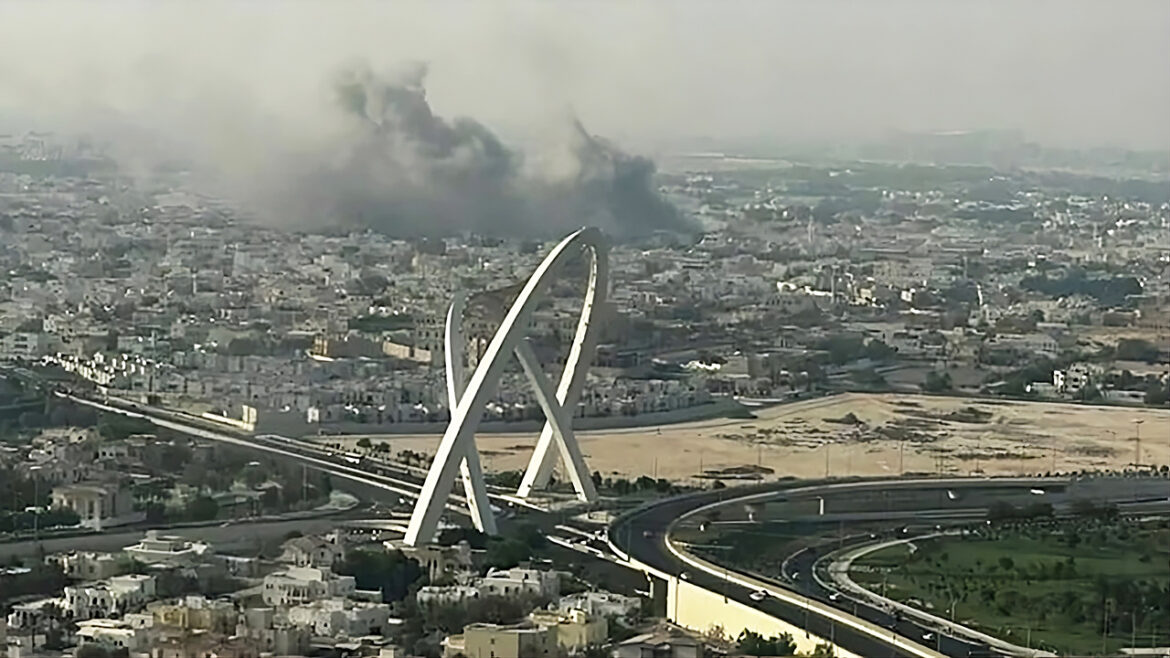By Desmond Nleya , Daily Times Political Editor
What Happened?
On September 9, 2025, Israel carried out an airstrike in Doha targeting Hamas leaders who were meeting there in relation to ceasefire negotiations.
The strike killed five lower-ranking Hamas members and at least one Qatari internal security officer; top Hamas negotiators survived.
Qatar, along with many other countries, condemned the action, describing it as a violation of sovereignty and international law.
There is concern that this attack undermines mediation efforts and could derail or weaken ceasefire negotiations.
Opinion
This strike is dangerous, counterproductive, and strategically flawed:
Violates Diplomatic Norms and Sovereignty
Conducting a military strike in the capital of another state — particularly one playing an active mediating role — is a grave breach of diplomatic norms. Such actions risk eroding the respect for sovereignty that the international system counts on. Qatar had been hosting Hamas negotiators under understanding, and this kind of strike jeopardizes trust in such mediation arrangements.
Undermines Mediation and Ceasefire Prospects
If the goal is peace, negotiating partners must believe their commitments are honored and that sensitive mediations are protected. Striking when talks are ongoing gives the impression that Israel is less interested in compromise and more in coercion. This damages the chance for a negotiated settlement and thus may prolong the conflict.
Escalation Risk
The attack escalates tensions across the Gulf and broader Middle East. It risks provoking diplomatic or even military responses from states that see this as an unacceptable aggression. A blow to Qatar’s sovereignty is felt across the region, and many states are aligning in their condemnation. There is a risk of miscalculation or wider conflict.
International Repercussions
Israel’s actions here could isolate it diplomatically, even among its more supportive allies. The US, which often shields Israeli actions at international forums, has expressed concern. Such strikes may damage its credibility and complicate its relationships with other regional powers.
Moral and Legal Concerns
Beyond politics, there are legal questions: does this constitute a violation of international law, war law, the UN charter? Civilians and noncombatants being in Doha, and a sovereign state being struck, raise serious issues. Even from a moral perspective, the human cost and the sense of injustice may fuel cycles of retaliation.
Implications for Regional Security & Unity
This incident has implications beyond Qatar-Israel; it’s a potential inflection point for how the region deals with conflict, states’ rights, and collective responses.
Gulf Arab States’ Solidarity Tested and Strengthened
The Gulf Cooperation Council (GCC) countries, other Arab states, and Islamic countries have voiced strong support for Qatar. This suggests that when a GCC member is directly attacked, the normative threshold for collective response is raised. We might see more unified diplomatic, legal, or political pushback in future similar situations.
Risk of Broader Conflict Escalation
The attack could trigger retaliation from non-state actors or provoke Iranian proxies. It increases the risk that the conflict could spill over or draw in more active involvement by regional powers. There’s also a risk that states might feel compelled to re-evaluate their security postures, alliances, and military readiness.
Erosion of Mediation Functions
Qatar’s role as a go-between (for Hamas, Israel, US, etc.) is crucial. If states feel that mediation hubs can be struck, they may become more cautious, decreasing transparency or trust. This could lead to fewer channels of negotiation, making violence more likely.
Diplomatic Fallout with U.S. Allies
Many Gulf states have normalized ties with Israel (or partially so); this strike strains those relationships. The UAE, for example, summoned the Israeli deputy envoy and issued strong condemnations.
States that have tried to balance relations with Israel and maintain their own regional influence will face difficult choices: to condemn, distance, or risk domestic/public backlash if they remain silent.
Impact on International Legal Norms
If such actions become more commonplace, it could weaken international norms around sovereignty, permissible military action, and the protection of diplomats, mediators, and civilians. That sets a dangerous precedent not just for the Middle East but globally.
Heightened Domestic/Popular Pressure
In many Arab societies, there will almost certainly be intensified pressure on governments to respond more forcefully — diplomatically, legally, or even militarily. Governments may feel compelled to respond to public opinion or risk political cost. That can push toward escalation rather than restraint.
Possible Scenarios Going Forward
Diplomatic Retaliation: Qatar and its allies may pursue legal action (UN, International Court of Justice), impose or threaten sanctions, or increase diplomatic isolation of Israel.
Security Measures: GCC states might increase security cooperation or mutual defense readiness, perhaps even joint responses or defensive posturing.
Jet of Mediation Role (loss of trust): Qatar could reduce or suspend its mediation role if it believes such dangerous actions will continue. Others may likewise hesitate to host or facilitate talks.
Escalation with Non-State Actors: Hamas or allied militias might respond with attacks — rocket, missile, or asymmetric methods — drawing Israel deeper into conflict.
Why This Matters
Ultimately, the strike marks more than a tactical action: it’s a turning point in both Israel’s conduct and regional dynamics. It demonstrates that conflicts are no longer strictly contained to Gaza or Palestinian territories; sovereign states are now directly implicated. The cost of conflict — militarily, diplomatically, and in terms of regional stability — is rising sharply.
For peace to have a chance, all parties need credible guarantees that negotiations are safe, mediation is respected, and sovereignty is honored. Without that, the danger is of a spiral: increasing militarization, broken diplomatic channels, and more suffering.
The views expressed in this article are the author’s own and do not necessarily reflect Daily Times’s editorial stance. Follow Desmond can be on X @DazzyNdazi


